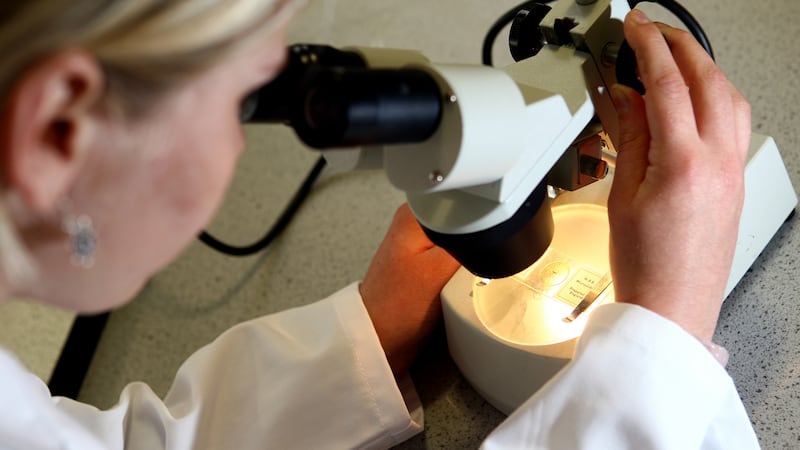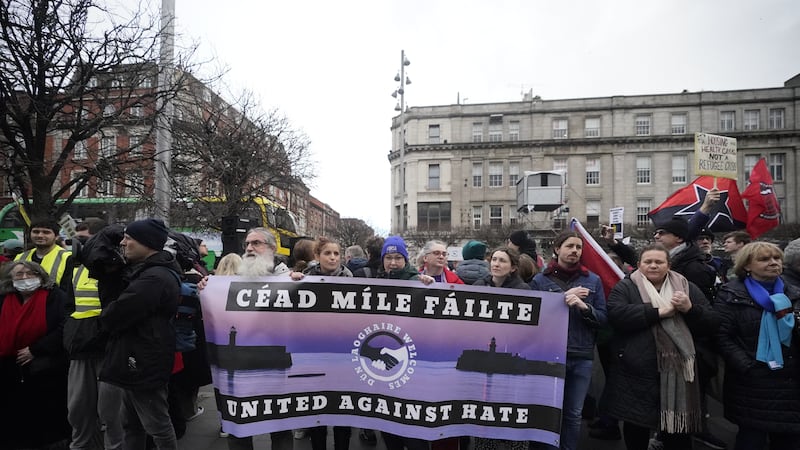Whenever the so-called ‘Hooded Men’ case comes back into the public spotlight, I can’t help but think about many others who were ‘hooded’ during our recent troubled past. They never had an opportunity to remove their hoods before being brutally executed, most often by the IRA.
On occasions, to add to this horror, their bodies were hidden and have yet to be returned to their loved ones. It’s recognised to this day that they were victims of torture, of a type that is not disputed by any court.
That is not to take away from any wrong done to the group known as the ‘Hooded men’. Though, in the hierarchy of wrongs that need to be investigated, it must be well down the list. If our courts are suggesting that such matters also now require police investigation, all the tiers where the priority is greater should be dealt with first.
The most pressing task is to deal with murders. I am still waiting to hear how our legal system intends to prioritise approximately 700 unsolved murders of members of the security forces, despite being told a response was being prepared.
After murder, we have serious injuries, attempted murders and then less serious injuries, which, after all, could still have resulted in deaths. The republican movement was responsible for 60 per cent of murders and, in all probability, a greater percentage of these lower tiered crimes.
We’re told that ‘selective justice’ is not an option. Therefore, it is necessary to deal with legacy issues properly and thoroughly. It could have been done differently, but the republican movement in particular has insisted on pursuing its grievances against the state, because its political strategy relies upon rekindling the hatred and divisions of the past.
As we can’t ignore its role in perpetrating the majority of crimes, while holding others to account, there is little choice but to insist upon justice in all cases.
Strangely, in the recent Spotlight programme on the Troubles, Tommy Gorman seemed to recognise the waste of life and wrong that caused violence here. That attitude could help open up a debate about how we deal with the past differently, in a way that frees up future generations from the legacy of hatred in our society.
We should never repeat the conflict of the past and we should keep focussed at all times on building relations and breaking down barriers in our society. That means challenging those who want to chain us to the flawed ideologies that led to so much tragedy, whether they’re doing it through the ballot box or the law courts.
TREVOR RINGLAND
Holywood, Co Down
English have never understood the damage they have done to Ireland
Reginald Maudling, Conservative minister in the Edward Heath government during the early years of the Troubles, on returning to London after his first visit said: “For God’s sake bring me a large scotch, what an awful country.”
I think this sums up what most English bureaucrats feel when involved in or with Ireland. England has always struggled to take Ireland seriously. There has been in recent times strains in the Anglo-Irish relationship and this has become more obvious with Brexit. Boris Johnson has shown an inability to understand the UK-Irish border issue. He has surrounded himself with ‘yes men’.
His recent failure to prorogue parliament can be summed up by a 1977 song from The Clash, I Fought The Law and the Law Won’.
This is the time now for the Irish government to defend very strongly their part in the Brexit fiasco. It will require perseverance and resolute resistance to Britain’s very possible, down the road, yet to come, gunboat-like diplomacy to play down Ireland’s position with Brexit.
Another so-called expert climbing out from under the woodwork, the chairman of the Brexit party, is claiming that the amount of trade that crosses the border is irrelevant and demonstrates analogies using jars of Smarties to equivocate his point that trade across the Irish border would not be an issue.
In fact he is peddling Boris’s argument for good will and technology, similar to that which is used to track a parcel being delivered to your home.
The Irish government are playing the right game on Brexit.
They must make sure that the EU maintains their line on Brexit too.
The English have never understood the damage they have done and continue to do on this island of Ireland and they don’t really care.
JAMES G BARRY
Templeogue, Dublin 6
Make change happen
NEXT Thursday is World Mental Health Awareness Day. According to the World Health Organisation, mental illness accounts for 15 per cent of the total burden of disease in the developed world, with depression set to become the second leading cause of disability by 2020.
We need to question our government, asking are they doing enough to prioritise primary care? Will our political elite look at what other governments are doing?
Take for example New Zealand, their Budget of 2019 takes a transformative approach to mental health, wellbeing and addiction systems and services, which include 13 new initiatives. They have set aside funding to establish a Mental Health and Wellbeing Commission, truly making transformational change.
Let us make our political parties aware that there are ideas that can be converted into policies that would transform our society.
That on this World Mental Health Awareness Day, as leaders they are aware that life can be made better for those who suffer from this illness, offering policies that when enacted will benefit everyone in our society and in doing so make change happen.
JIM BOYLAN
Warrenpoint, Co Down
Nolan Show ignoring balanced views
I, as an Irish republican, ‘regret’ that the IRA were not ‘successful’ in forcing a British withdrawal from the six counties, but they did force the British to the negotiating table where many of the causes of revolution in Ireland were solved and there is a clear pathway to the ending of British rule in Ireland.
Last week The Nolan Show discussed the ‘bringing to justice’ of Fr Ryan with a unionist who has expressed his objection to “bringing to justice” the perpetrators of “terrorism” on the nationalist people of Ireland but failed to state that an extradition warrant had already failed, when a minister in Margaret Thatcher’s government prejudiced the case and branded him as a terrorist using parliamentary privilege.
When I rang the show to give a balanced view on the subject I was ignored, as I have been on many occasions, yet the show has ‘loyalist bloggers’ as guests on a range of subjects in which they have no expertise.
RAYMOND McMAHON
Clogher, Co Tyrone







